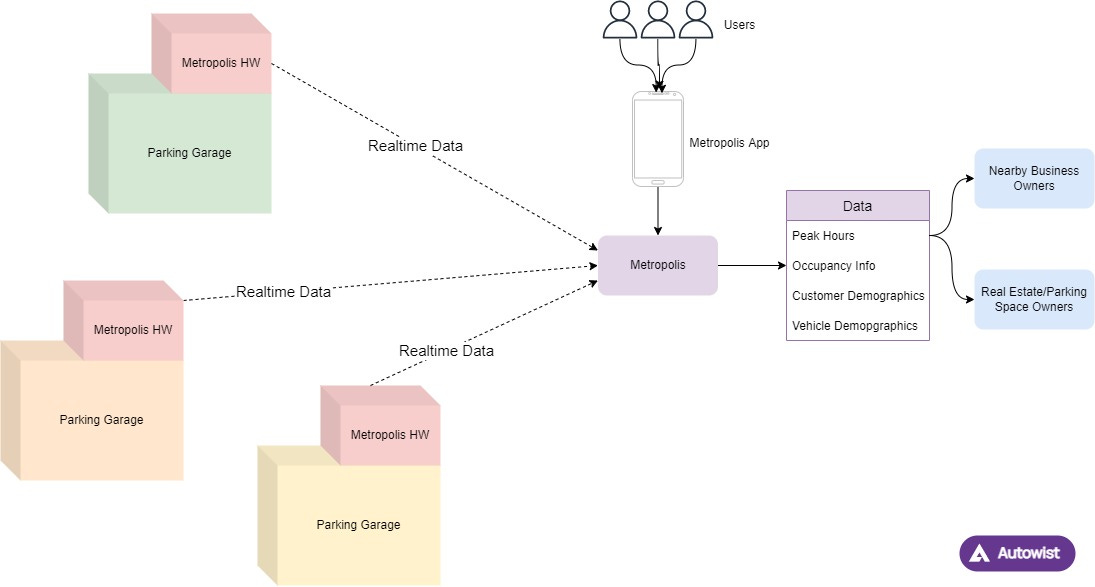Metropolis
Metropolis is a parking management company that use advanced computer vision and machine learning technology to provide a seamless experience to customers. They claim that their solution is already in use at hundreds of facilities. In June 2022, they raised a total of 167M$ as part of their Series B round co-led by 3L Capital and Assembly Ventures.
They have a full mobile infrastructure combined with computer vision that helps cars pay as you drive into a spot and drive out. No cash. No tickets. Their business model is positioned as a B2B company, where real estate and parking space owners (not singular but bulk) can use metropolis as their service provider. And customers can just use metropolis to park in their facility in a seamless way.
Here are my thoughts about Metropolis:
1. They leverage existing and proven technology. Easy to understand both from a consumer and business point of view. The tech needed to achieve this level of seamlessness is within reach of today's tech.
2. High switching costs for real estate owners. Mainly because of the initial investment needed to set up metropolis in your own space.
3. Switching costs are not that relevant for consumers since you typically won't have 2 operators within the same parking space. But a sticky and seamless experience might affect consumer decision on where they would like to park and in turn, where they might go to have dinner.
4. When metropolis have multiple parking spots within a city, they can then leverage that data to create even more seamless experiences like parking reservation in prime locations. They could introduce plans for families with multiple vehicles and even explore fleet opportunities for employees.
5. Possibility for surge pricing. It could be reasoned from a sustainability point of view. But that could be 2 level taxation for consumers, esp. if they already have to pay a congestion tax to even get to the city. So the counter action could be that the prices drop a little during congestion. Making Metropolis the go to place to park. Perhaps, a hybrid model is the way to go.
6. Metropolis is limited to closed indoor spaces. I would guess that is because of the fragile tech that needs to be installed and the required level of security in the parking space.
7. Metropolis gives back the data for that environment to the particular real estate owner. So they can see when are the peak times and what are the typical durations that cars being parked etc. They are also open to partnering with local merchants and shops to provide visibility in the app.
8. Customer addressal system, down-time measurement, live 24/7 support would be key to provide a "seamless" experience to consumers. This is nothing new, but they will have to nail this one.
9. Can competitors replicate this? For most parts yes. The tech needed is not on the bleeding edge of state of the art. What may not be reproducible is the customer experience, the details, and especially how the company handles when things don't work.
Metropolis Model
At the core of it, their key differentiator is the user experience. But if I zoom out I see another trend at play here. Startups like Metropolis are enabling the same level of seamless operation we experience online to a physical space. Every check-in, every lock/unlock that we do in the physical world could be ironed out even more with relatively simple tech.






